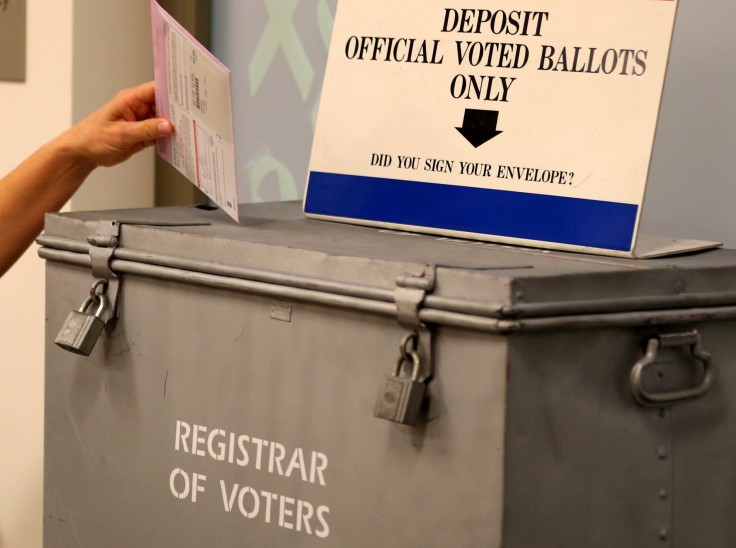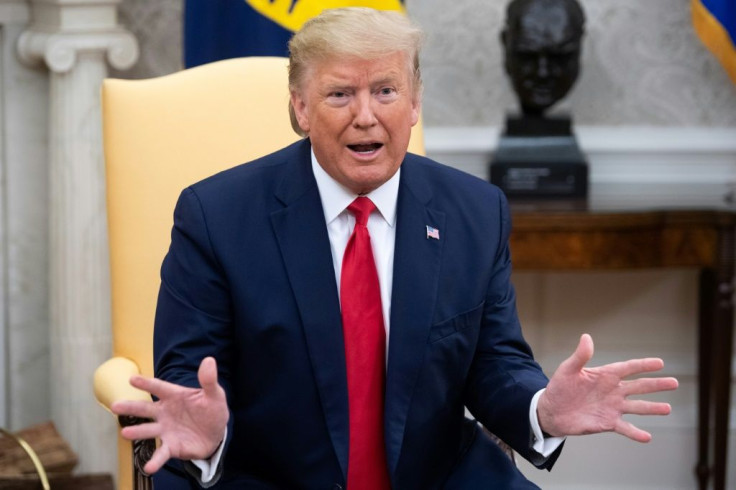Election 2020 Poll: Trump Will Win Re-Election, Futures Markets And Bookies Predict

KEY POINTS
- This early and the election markets predict a Trump win in 2020
- Trump will beat Joe Biden
- Biden is the odds-on favorite on both sides of the Atlantic to win the Democratic nomination
With the 2020 presidential election on November 3 a scant 10 months away, the betting odds this early are for Joe Biden to become the Democrat's candidate and for Donald Trump to lose the popular vote once again but -- like in 2016 -- win the presidency.
These predictions are based on a unique method that compares the elections to a futures markets. Theo Francis, a veteran writer covering corporate news for The Wall Street Journal, said these predictions in this "election markets" method aren't his.
"They're Mr. Market's, thanks to a small but busy domestic futures market in election outcomes, as well a robust overseas betting book," he noted in a Wall Street Journal piece.
Francis also noted futures markets and betting books for the U.S. presidential race are in full swing. He said these kinds of predictive markets are still the best bet for calling election results, especially this far away from November.
"They provide a full measure of what's likely to happen on an election-by-election basis that's quite useful," said David Rothschild, an economist at Microsoft Research. Rothschild earned his doctorate from Wharton Business School in market design.
Here's a few of the predictions from the election markets:
- Odds are that Bernie Sanders wins Iowa. Joe Biden wins the Democratic nomination. Donald Trump wins the presidency, but loses the popular vote -- again. The Iowa market’s ability to predict elections outperforms the national polls, according to a 2008 study, which makes this prediction somewhat truer than expected.
- The odds Trump wins in November are almost even at 10-to-11 compared with 5-to-6 for a Democrat generally. The 10-to-11 odds aren't that impressive compared to Barack Obama's odds (1-to-3) at a similar point in 2012, and George W. Bush, 1-to-2.
"He's in a pretty poor place relative to other incumbents," said Alex Donohue, a veteran U.K.-based political betting analyst, told WSJ. "You would expect an incumbent to have shorter odds to win a second term."
Bookies in the United Kingdom also have a 6-to-4 odds Biden wins the Democratic presidential nomination. This means that if someone bets $1, he'd win it back along with another $1.50. The odds are 3-to-1 Sanders wins the nomination.

A word of warning on these odds, however.
"The favorite doesn't always win,” noted Rothschild. “No one should look at the betting market and say the most likely outcome will definitely happen."
While not in the betting business Bob Doll, senior portfolio manager and chief equity strategist at Nuveen Asset Management, shares the election markets' results.
“Donald Trump (gets) re-elected, Democrats retain the House, Republicans retain the Senate -- that’s the status quo, nothing changes,” he said on Yahoo Finance's "The First Trade."
Doll also believes keeping Trump in his post would be a welcome news for the markets.
"I think that will give the markets a sigh of relief. It will at least know what it will get, whether they like it or don’t like it.”
© Copyright IBTimes 2024. All rights reserved.





















